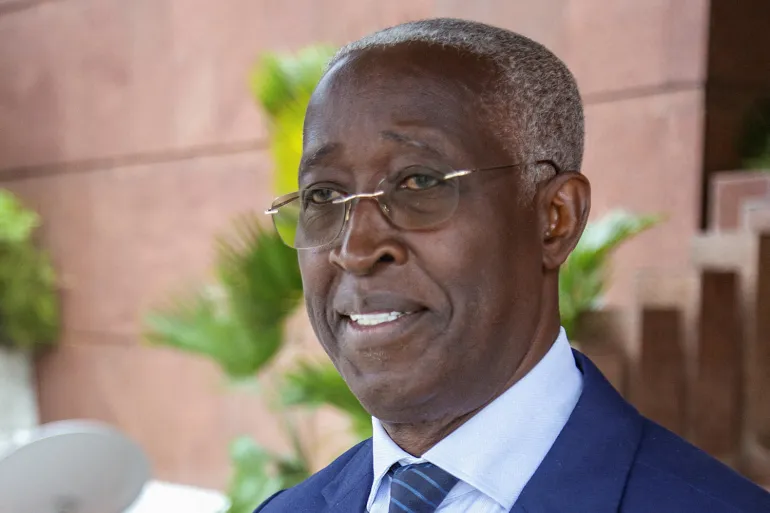Gabon’s military government, which took control in a coup last week, has appointed Raymond Ndong Sima, a former opposition leader, as the prime minister of its transitional government. Sima, a 68-year-old economist, had been a vocal critic of President Ali Bongo, who was ousted by military officers on August 30.
The appointment was announced on state TV on Thursday and came in a decree by General Brice Oligui Nguema, the new interim president.
Raymond Ndong Sima previously served as Bongo’s prime minister from 2012 to 2014 but later resigned and ran against him for president in 2016. He also participated as part of an opposition coalition in this year’s elections.
Sima’s appointment signifies a significant shift in power dynamics within Gabon, as he transitions from being a critic of the government to leading the transitional administration.
In his inauguration speech, General Oligui pledged to organize “free, transparent, and credible elections” to restore civilian rule, although he did not provide a specific timeline for these elections.
President Ali Bongo, who had been in power since 2009, succeeded his father Omar Bongo, who ruled Gabon for 42 years. The Bongo family’s long-standing dynastic rule had sparked widespread discontent among the population, with critics accusing them of failing to distribute the country’s wealth among its 2.3 million citizens.
The military coup in Gabon was met with scenes of jubilation in the capital, Libreville. The military government swiftly consolidated power, with General Brice Oligui Nguema assuming the role of interim president on Monday.
The new administration has expressed its commitment to implementing economic reforms and ensuring free and fair elections, although specific details regarding these reforms and the election timeline have yet to be disclosed.
Abdou Abarry, the special representative of the UN secretary-general in Central Africa, met with President Nguema in Libreville on Wednesday and assured him of the United Nations’ support as Gabon embarks on a new chapter.
Abarry stated that once the government’s roadmap and timetable are established, UN agencies will engage and continue to assist Gabon.
Unlike recent military takeovers in the region, Gabon’s coup has not witnessed anti-French or pro-Russian sentiments. The military leaders in Libreville have shown a willingness to engage in dialogue with international organizations, in contrast to their counterparts in Niger.
The Central African regional bloc, ECCAS, suspended Gabon on Monday but sent the president of the Central African Republic, Faustin-Archange Touadéra, as its representative to meet with President Nguema.
Touadéra also had a meeting with former President Ali Bongo, with Nguema’s permission, although no details about Bongo’s circumstances or state of mind were disclosed.
The military government announced on Wednesday that Ali Bongo, who had been under house arrest following the coup, was now free and could travel abroad for medical checks if he desired.
This development indicates a potential easing of tensions between the military government and the deposed president.
The coup in Gabon marks the eighth military takeover in West and Central Africa in the past three years. However, it differs from recent coups in Niger, as Gabon has not witnessed the same level of anti-French or pro-Russian sentiments.
The military leaders in Gabon have shown a willingness to engage with international organizations, which sets them apart from their counterparts in Niger.
While the Central African regional bloc, ECCAS, suspended Gabon, President Faustin-Archange Touadéra of the Central African Republic visited Gabon as a representative of ECCAS.
Touadéra’s meeting with both President Nguema and former President Bongo was described as fruitful, although no specific details were provided.
As Gabon moves forward, the appointment of Raymond Ndong Sima as interim prime minister signals a significant shift in the country’s political landscape.
The focus now turns to the military government’s commitment to economic reforms and the organization of free and fair elections, which will determine the future of Gabon’s governance.
